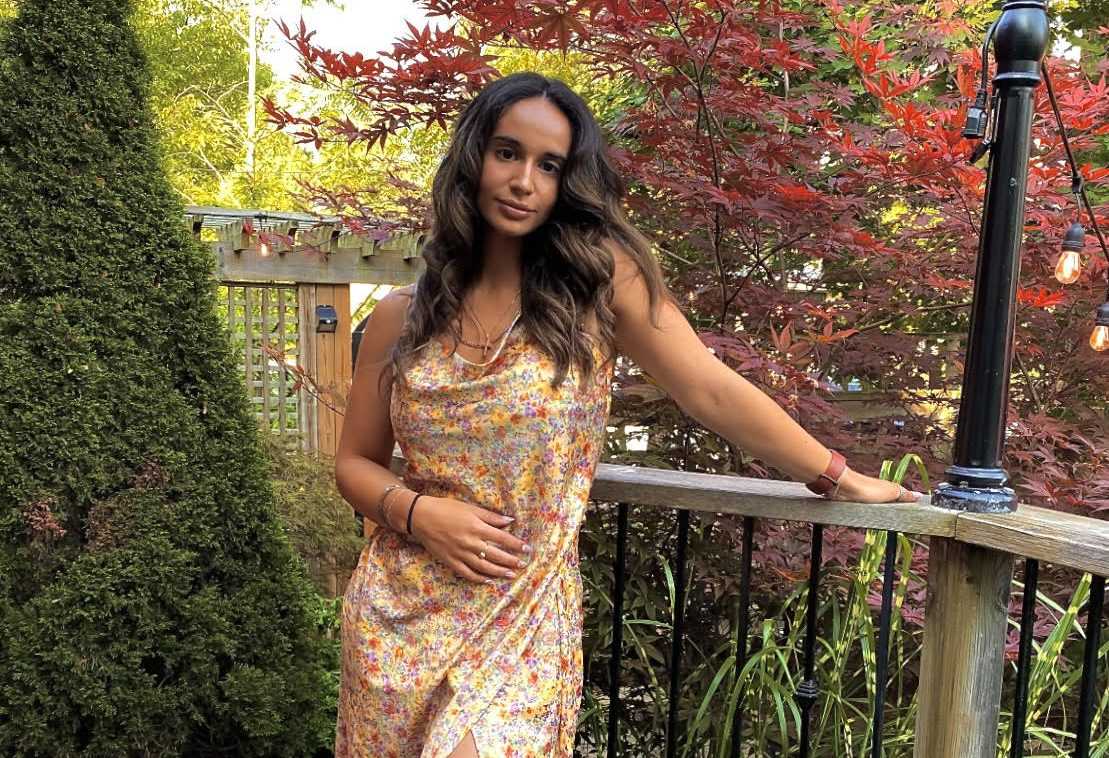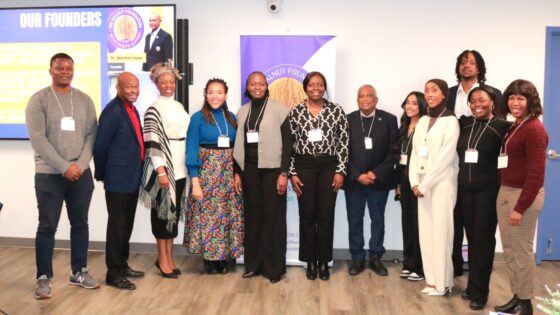on
BY SIMONE J. SMITH
“I was born in Mississauga, and at birth, I was in isolation at Credit Valley Hospital. Just my luck; I had a reaction to antibiotics, and my body resembled a burn victim, and to this day I have to stay as healthy as possible. They called it Steven Johnson Syndrome. I am very lucky that I was so young, because I don’t have a memory, but my parents tell me that it was terrifying.”
Even in the darkest times, a spark of determination burned within her. As our Woman Empowered grew, so did her resolve. She faced pain and isolation but refused to let it break her spirit. She will tell you that the path was never easy. Long nights, endless surgeries, and moments of doubt tested her resolve. Through sheer will and dedication, she began to shine. Her efforts caught the attention of those around her. Years of hard work and relentless dedication finally paid off. She has been able to achieve what once seemed impossible.
Taylor Nelson is a Canadian-born professional, driven by the potential for change and social justice. Her career has spanned: corporate, political, and creative sectors, but her heart lies in: community, human equity, and storytelling. This unique blend of experiences has honed her adaptability and diverse skill set.
With a Bachelor in Sociology and Social Studies of Medicine from McGill University, Taylor uses her: knowledge, expertise, and advocacy skills to speak for the voiceless in the medical care system. As a biracial woman, she aims to address the intersections of public health, policy, and human rights to reduce health disparities for the Black community.
Most recently, she was awarded an academic scholarship to Emory University in Atlanta, Georgia, to pursue a Masters in Public Health. She is committed to broadening her knowledge and proficiencies as someone who has navigated many different corners of unrest with her own health. This program grants her the ability to find her place in changing it.
As a former Team Canada athlete and entrepreneur, Taylor understands the distinctive challenges of the athletic community. In her role as a Mental Health Coach for athletes recovering from injury, she is a beacon of hope, helping individuals reclaim their lost identity. Her work as a Fundraising Specialist for The Olive Branch of Hope, an organization devoted to breast cancer support programs and initiatives for women of African-Caribbean ancestry, her role allows her to showcase her aptitudes in grant writing, project management, and partnership development.
Her diverse experiences in the creative industry, including her own: photography business, digital marketing, and communications management, all allow her to continue building her portfolio and share the stories of those who deserve to be heard. Whether with a pen, a camera, or a keyboard, Taylor is an empowered leader for those she crosses paths with, both personally and professionally.
Of course, I had to speak with this blossoming talent and find out more about her life. What she shared brought me a higher level of understanding and respect for the empowered woman.
“My parents met in Montreal Quebec,” Taylor began. “She was attending an all-Black high school and befriended all my father’s sisters. At the time he was with someone, and they both had ups and downs in their relationships and went through a lot. My dad took my mom out of an abusive relationship and brought her to British Columbia. My dad’s first son is 50, my oldest brother is 29, then came me.”
Taylor tells me that her younger life was blessed, beautiful, and great. She was what was considered privileged. “I have seen so many corners of the world, traveled, and they pushed me to get my education, stay on my toes, and when I got injured, my whole life shifted.”
“I have been an athlete my whole life. Being in a house full of men, it was normal to watch basketball, and other sports, but my main sports were karate and martial arts. It was in a sport where you don’t see a lot of women. I will never forget the day that I got injured; I remember I kicked really high and felt a pop. I thought it was a normal injury, and when I went to emergency, they told me pretty much to walk it off. This turned into a 13-year-long injury. It was a torn hip labrum.”
The hip labrum is a crescent-shaped piece of soft, elastic cartilage that lines the rim of the hip socket. The main function of the hip labrum is to stabilize the hip joint. The joint hits and rubs against each other and causes discomfort. The tear had started, and it continued to fragment. “I had a couple operations, but after my second surgery I realized that something was really wrong. I was on oxycontin, and Fentanyl, it was not normal for a teenager.”
“I will never forget the look that my surgeon gave me; I knew that my athletic life was over. It was hard to watch everyone around me doing what you loved so much, and not being able to participate. I went to a sports psychologist for a while, and I realized how important taking care of your mental health is. This is how I got so interested in sports psychology.”
“My pivot was focused on my future. I have been pushed by my family to have big dreams, push for a career, and to build myself. I started to prioritize my health and fuel my passion.”
“My original goal was to be a surgeon. I love science, and I was so empowered by the doctors in my life, but due to my injury, I was not able to dedicate the time to my studies that I would have liked, so during that process, I fell in love with law. I knew I could do this. Then I discovered the field of public health. It covers law, medical care, and medical systems. I got an academic scholarship to study at Emory University in Atlanta. It is the public health capital of the world. This aligns with my passions in such a unique way.”
One of my takeaways from my discussion with Taylor is that through perseverance, you can overcome any obstacle. She is doing exactly what she wants to do today because she never gave up, and neither should you. Taylor’s journey was never just about her. She knew the importance of giving back and inspiring others to reach their potential. Her life came full circle. From a rough beginning to a life filled with purpose and achievement, her story is a testament to the power of perseverance and dedication.
Readers remember this; no matter how difficult the journey, the human spirit is capable of extraordinary things.
Stay in the loop with exclusive news, stories, and insights—delivered straight to your inbox. No fluff, just real content that matters. Sign up today!
We, as humans are guaranteed certain things in life: stressors, taxes, bills and death are the first thoughts that pop to mind. It is not uncommon that many people find a hard time dealing with these daily life stressors, and at times will find themselves losing control over their lives. Simone Jennifer Smith’s great passion is using the gifts that have been given to her, to help educate her clients on how to live meaningful lives. The Hear to Help Team consists of powerfully motivated individuals, who like Simone, see that there is a need in this world; a need for real connection. As the founder and Director of Hear 2 Help, Simone leads a team that goes out into the community day to day, servicing families with their educational, legal and mental health needs.Her dedication shows in her Toronto Caribbean newspaper articles, and in her role as a host on the TCN TV Network.













